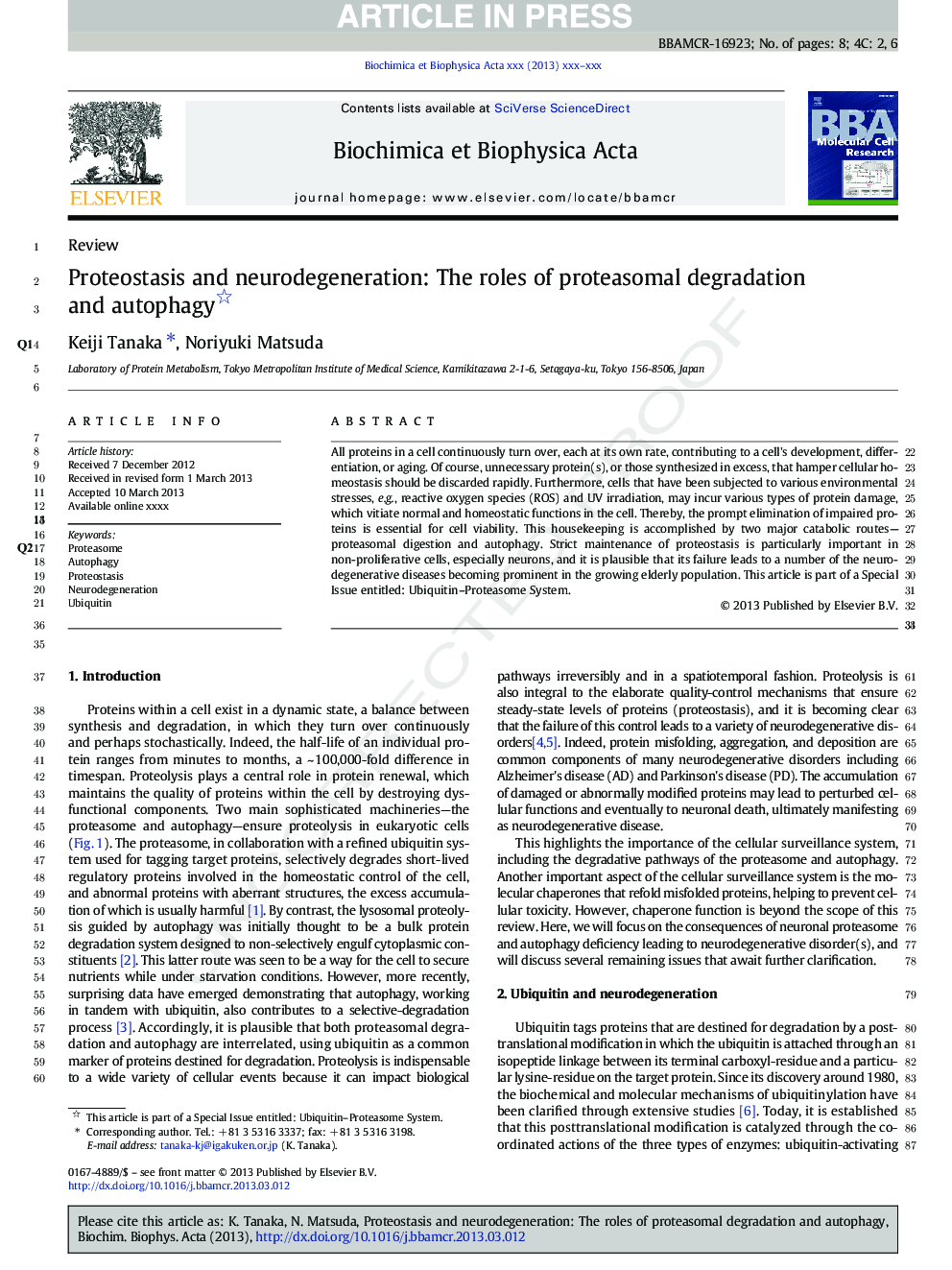| کد مقاله | کد نشریه | سال انتشار | مقاله انگلیسی | نسخه تمام متن |
|---|---|---|---|---|
| 10802194 | 1055666 | 2014 | 8 صفحه PDF | دانلود رایگان |
عنوان انگلیسی مقاله ISI
Proteostasis and neurodegeneration: The roles of proteasomal degradation and autophagy
ترجمه فارسی عنوان
پروتئازوستاز و عصب نوترال: نقش تخریب پروتئازام و اتفافی
دانلود مقاله + سفارش ترجمه
دانلود مقاله ISI انگلیسی
رایگان برای ایرانیان
کلمات کلیدی
موضوعات مرتبط
علوم زیستی و بیوفناوری
بیوشیمی، ژنتیک و زیست شناسی مولکولی
زیست شیمی
چکیده انگلیسی
All proteins in a cell continuously turn over, each at its own rate, contributing to a cell's development, differentiation, or aging. Of course, unnecessary protein(s), or those synthesized in excess, that hamper cellular homeostasis should be discarded rapidly. Furthermore, cells that have been subjected to various environmental stresses, e.g., reactive oxygen species (ROS) and UV irradiation, may incur various types of protein damage, which vitiate normal and homeostatic functions in the cell. Thereby, the prompt elimination of impaired proteins is essential for cell viability. This housekeeping is accomplished by two major catabolic routes-proteasomal digestion and autophagy. Strict maintenance of proteostasis is particularly important in non-proliferative cells, especially neurons, and it is plausible that its failure leads to a number of the neurodegenerative diseases becoming prominent in the growing elderly population. This article is part of a Special Issue entitled: Ubiquitin-Proteasome System. Guest Editors: Thomas Sommer and Dieter H. Wolf.
ناشر
Database: Elsevier - ScienceDirect (ساینس دایرکت)
Journal: Biochimica et Biophysica Acta (BBA) - Molecular Cell Research - Volume 1843, Issue 1, January 2014, Pages 197-204
Journal: Biochimica et Biophysica Acta (BBA) - Molecular Cell Research - Volume 1843, Issue 1, January 2014, Pages 197-204
نویسندگان
Keiji Tanaka, Noriyuki Matsuda,
